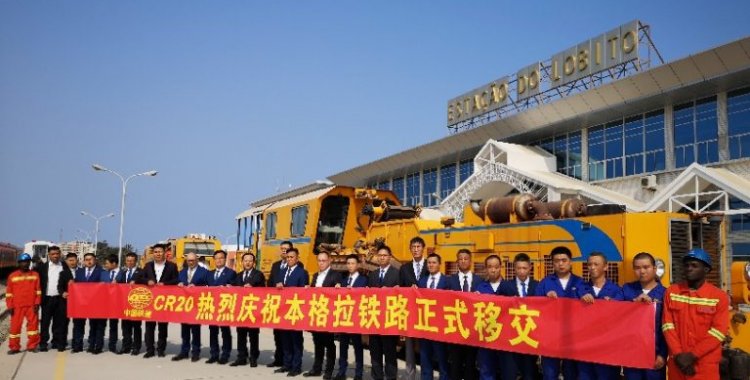Speaking about the prospects for the China-Africa Cooperation Forum (FOCAC 2024) taking place next week in Beijing, the expert hopes that the meeting will encourage Angola and other African states to change the cooperation model with China.
Angola must work to change its relationship with China, particularly “from the point of view of attracting investors. Angola can attract much more to the commerce sector, while I think it should try to attract the industrial sector”, said Osvaldo Mboco in an interview with Lusa.
He argued that, for Angola, “it would be crucial” that its strategy of attracting Chinese investors was essentially focused on installing a manufacturing unit in Angolan territory.
“With this, we would be competing to increase the flow of business at the level of the Angolan State and employ a greater number of young Angolans, giving families purchasing power and circulating more money in the Angolan financial system”, he highlighted.
However, it is necessary for the country to make structural and structuring improvements and reforms, aiming to change the current business environment, “which is one of the worst in the world”, he said, so that large Chinese companies can set up shop in Angola.
“We have to do this homework, aiming to boost the Angolan economy, because our biggest bottleneck is in the business environment”, he said, considering that the opening of large Chinese shopping centers does not boost the diversification of the economy.
FOCAC 2024 will take place between September 4th and 6th in Beijing, a summit that constitutes an “important instrument” of the foreign policy of the People's Republic of China towards the African continent, he said.
Relations between Angola and China, the country's largest creditor, with which it maintains a strategic partnership and a General Agreement signed in 1983, “are essentially based on lines of financing for the reconstruction of Angola”, recalled the analyst.
For Mboco, it is time to change the method of paying the debt with China, mostly paid with oil.
“We have to start thinking that our payment method should be essentially limited to cash payments, I think this has already been done, but not to the extent that was expected”, he noted.
During President João Lourenço's visit to China last March, new terms were negotiated for the payment of the 17 billion dollars that Angola owes to China and which makes the country the largest African debtor to Asia.
The Chinese ambassador to Angola, Zhang Bin, said this week in an interview with Angop that Angola's debt to his country decreased, last year, from 17.9 billion dollars to 16 billion dollars, “thanks to the update of the payment method”.
Osvaldo Mboco considered, on the other hand, that FOCAC aims to reaffirm and consolidate the Chinese presence in Africa and should allow for the expansion of trade and new economic agreements.
He highlighted that Angola and 20 other African countries are part of the zero tariff agreement on 98 percent of African goods to be exported to China, noting, however, that these countries have not been valuing this agreement.
“They have taken bad advantage of this (the agreement)”, he criticized, arguing that they should “consolidate and improve the agricultural profile” and export food to China, bearing in mind that it is a country of continental size.







